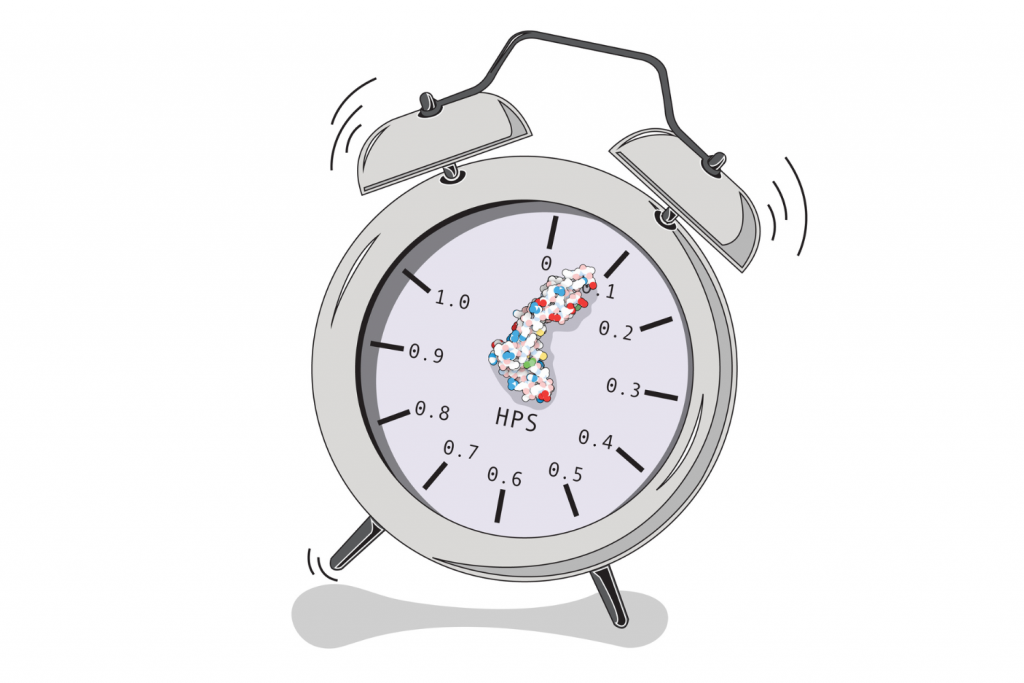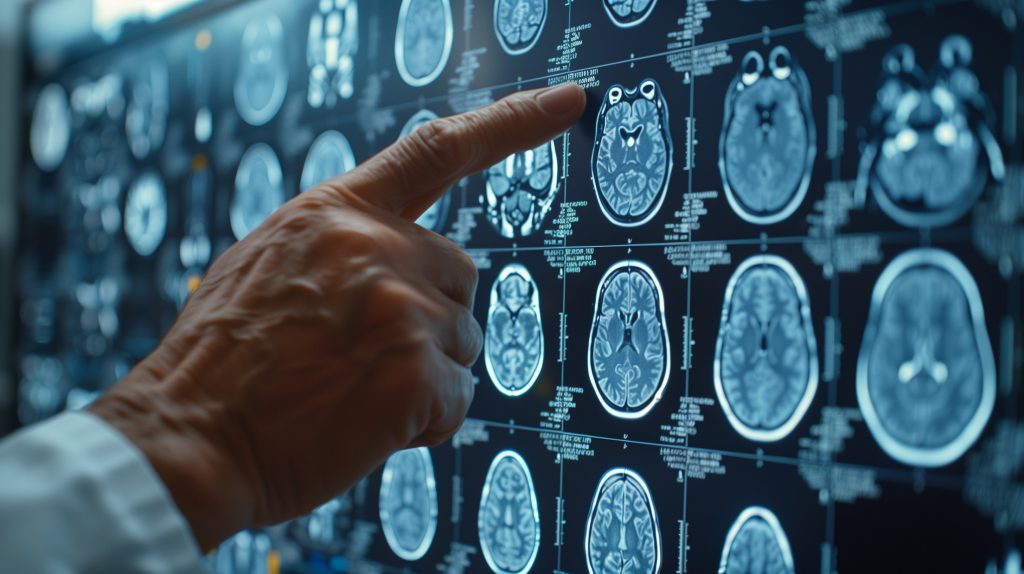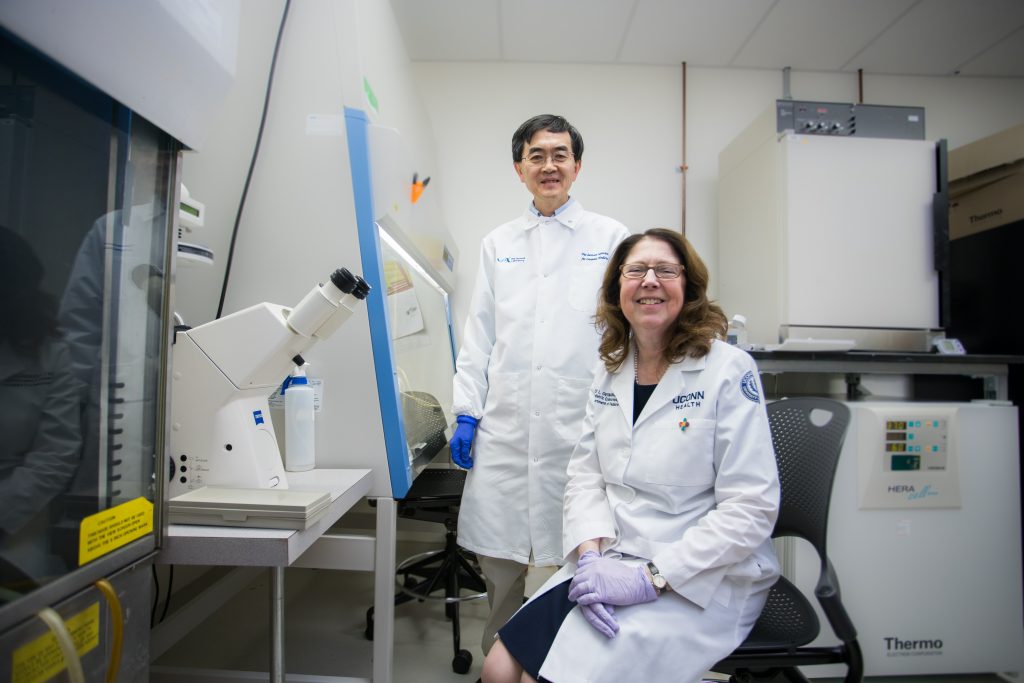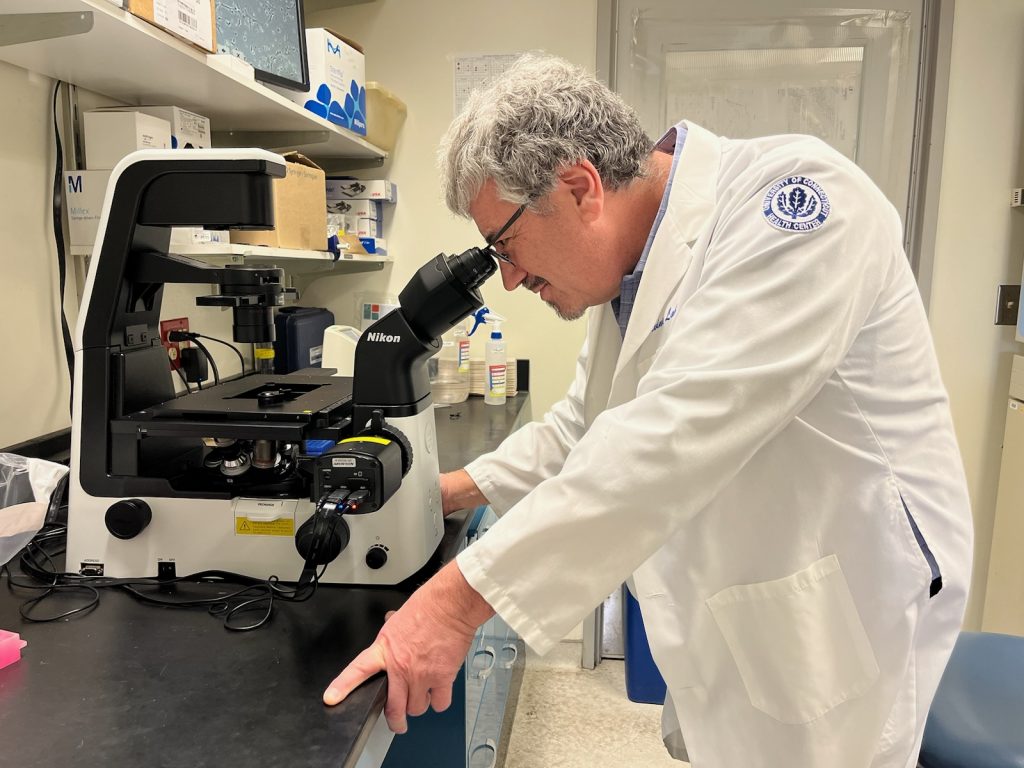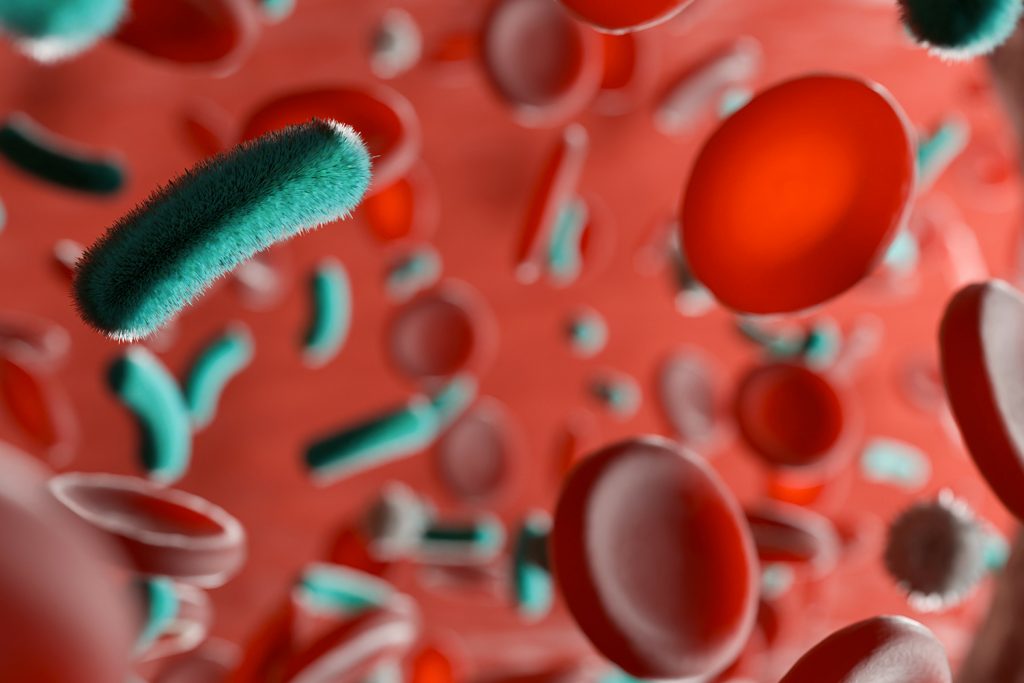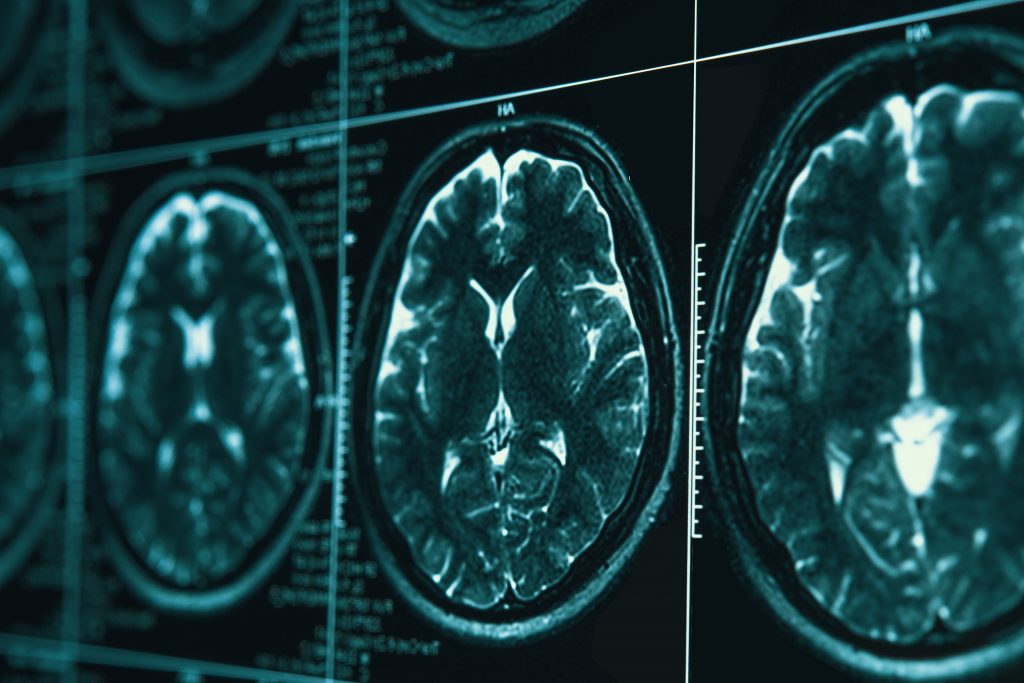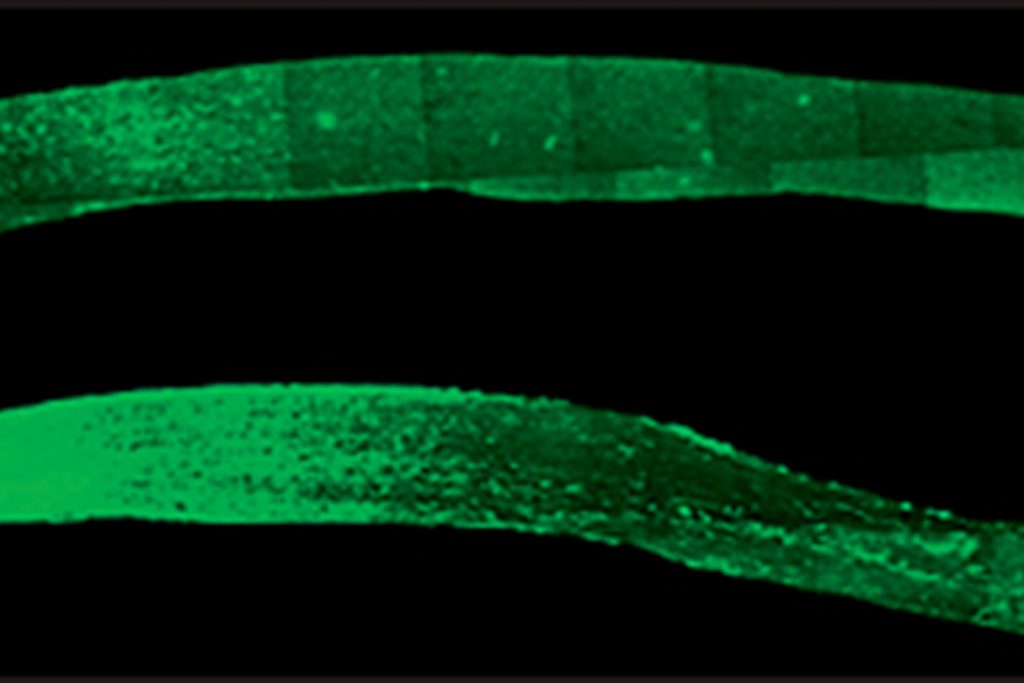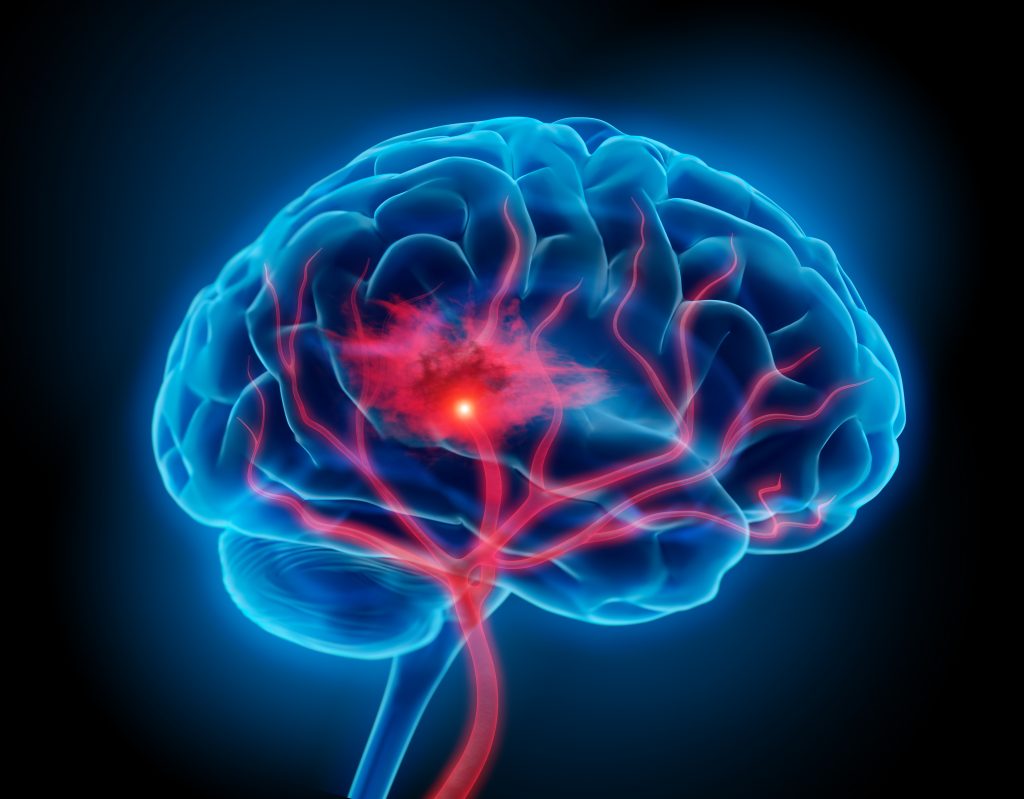Lab Notes
Scientists Develop New Blood-Based Proteomic Score to Predict Healthspan and Disease Risk
UConn School of Medicine study published in PNAS introduces Healthspan Proteomic Score as a biomarker for healthy aging
June 9, 2025 | Combined Reports
Supervised Exercise Improves Broken Hip Outcomes in Older Women
JAMA Network Open Publishes Study Results of the STEP-HI Clinical Trial, Finding That Testosterone Gel Use in Women Recovering from Hip Fracture Does Not Improve Outcomes Compared to Supervised Exercise Alone
May 15, 2025 | Combined Reports
UConn Uncovers New Clue on What is Leading to Neurodegenerative Diseases Like Alzheimer’s and ALS
Decreased levels of TDP-43 gene inside the nucleus of endothelial cells is disrupting blood-brain barrier’s protection
March 14, 2025 | Lauren Woods
Next Generation of Weight Loss Drugs Being Researched at UConn
Nearly 30 years later Dr. Se-Jin Lee’s discovery of myostatin is not only leading to treatment for spinal muscular atrophy but also fueling the global obesity drug research race
February 25, 2025 | Lauren Woods
Eagles Autism Foundation Awards Research Funding to UConn School of Medicine
Cutting-edge autism research of UConn Neuroscientist Dr. Eric Levine and his Lab wins $400,000 in research funds thanks to football fans donating to the annual Eagles Autism Challenge
February 6, 2025 | Lauren Woods
Sepsis, or Death By Lethal Message
If scientists understand what causes this deadly cellular message chain, they might be able to stop it
January 23, 2025 | Kim Krieger
Some Senescent Cells Heal, Others Hinder
In a new study, UConn School of Medicine researchers describe how to distinguish between senescent cells that speed wound healing and those that hinder it
December 13, 2024 | Kim Krieger
New Approach Could Help Alzheimer’s Research
Clues that a different than expected type of cell is involved in the earliest stages of the disease
December 5, 2024 | Kim Krieger
Nerve Regrowth in Sight
The findings could lead to a potential treatment for a common cause of blindness
December 4, 2024 | Kim Krieger
UConn Researchers Working to Extinguish ‘Inflammatory Fire’ Stroke Causes in the Brain
World Stroke Day is on October 29 but all-year-round UConn is on a steadfast mission to find a new, future stroke treatment
October 28, 2024 | Lauren Woods
